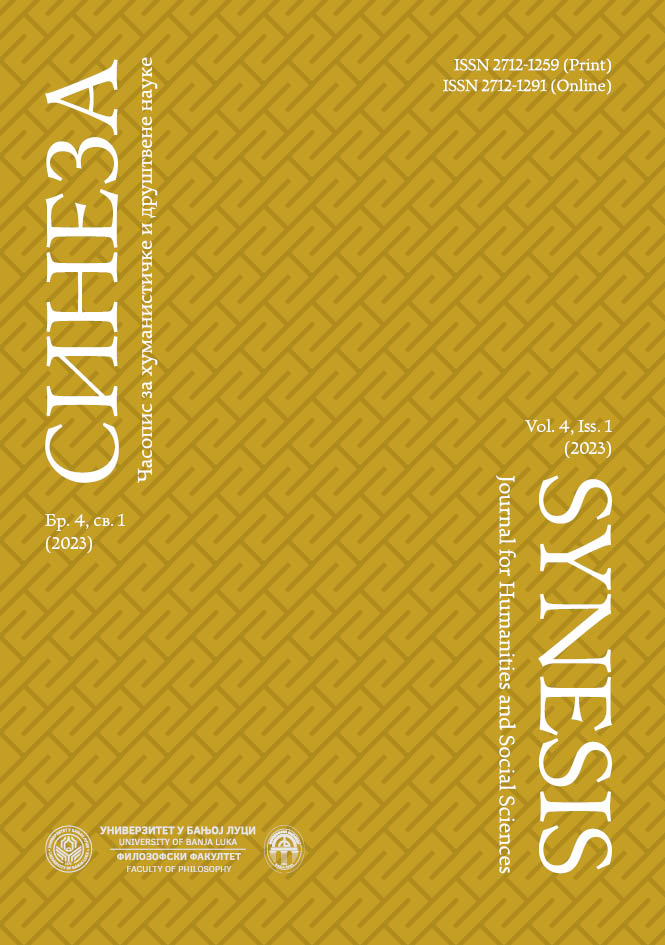Була папе Николе V деспоту Ђурђу Бранковићу (Рим, 24. октобар 1453. године) у контексту папске крсташке политике
Papal bull of Pope Nicholas V to despot George Brankovic (Rome, October 24, 1453) in context of papal crusading policy
Author(s): Igor StamenovićSubject(s): Political history, Politics and religion, 15th Century
Published by: Filozofski fakultet, Univerzitet u Banjoj Luci
Keywords: Pope Nicholas V; despot George Branković; crusades; Alfonso V of Aragon; the Union of Florence;
Summary/Abstract: Pope Nicholas V issued a bull to Serbian despot George Brankovic on October 24, 1453, in which he took the despot under papal protection. The bull was analyzed within a broader context of the anti-Ottoman crusading policy of the papacy after the Ottoman conquest of Constantinople (1453). Crusading projects of the Curia and King Alfonso V of Aragon considered the involvement of Balkan Christians in the war against the Turks. The Serbian Despotate, as a state on the direct frontier with the Ottoman Empire, was an integral part of these projects. The growing Ottoman threat caused more intense contacts between despot George and pro-Crusade Western powers, resulting in the issuance of the mentioned bull. The first part of the bull calls on the secular and church authorities to show solidarity with the despot during his confrontations with the Ottomans. The protection of George’s land and personal property during the war was guaranteed. In the next part of the bull, the Pope threatened to punish those who desecrated churches and icons in the despot’s land. This note most likely refers to Franciscan missionaries who were known for their aggressive methods in the conversion of the Orthodox in the border area between the Serbian Despotate, the Kingdom of Bosnia, and the Kingdom of Hungary. The Pope’s note in the bull was probably given to reduce the impact of religious tensions, thus creating conditions for the implementation of the church union. The policy of the union was equally motivated by the religious and political idea of Christianity unified in the anti-Ottoman Crusade. In the last part of the bull, despot George’s confession of faith was confirmed to be in compliance with the faith defined by the Council of Florence (1439). The Serbian Despotate was most probably involved in negotiations about the church union before 1453 at the Councils of Basel (1431–1449) and Ferrara/Florence (1438–1439). Despot George was probably aware of the correlation between the church union and the anti-Ottoman crusading policy. Therefore, the union served as a theo-political means in the mentioned period, as well as in 1453. In the papal bull, George was given the right to observe the Eastern Christian customs, which was in accordance with the decisions of the Council of Florence and the way they were implemented in the East. Contemporary notes of friar John of Capistrano against the validity of despot George’s religious beliefs have been cited as the key reason for doubting the unionist information from the bull. Capistrano’s accusations, however, should be observed separately from the Serbian Despotate’s relations with the Curia. They were primarily the result of the friar’s rigorous attitudes towards non-Western Christian traditions, as well as his active support to the Franciscan missionaries criticized by the papal bull. The alignment of despot George’s faith with the Florentine Confession implied acceptance of the purgatory doctrine. In that way, from the papacy’s point of view, the indulgences given by the crusading bull Etsi ecclesia Christi (1453) could apply to the despot. Despot George’s distancing from the idea of the church union no later than 1456 confirmed the interdependence of crusading and church union policies in his political actions. By that time, despite all the attempts and projects, it became clear that the actual crusade would not be waged.
Journal: Sineza
- Issue Year: 4/2023
- Issue No: 1
- Page Range: 59-75
- Page Count: 17
- Language: Serbian

